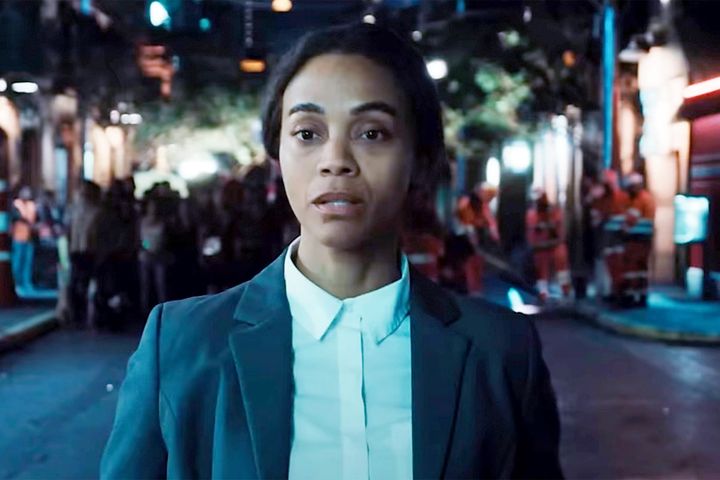
50 Ways of Saying Fabulous at TIFF
Here's something I've never had the opportunity to write about before: a gay kids' movie. Not a movie for children about homosexuality, mind you (although I suppose it is that as well); this is a movie about queer kids. That alone, in the annals of transgressive cinema, makes 50 Ways of Saying Fabulous something worth looking at, because (to my mind, anyway), there has never before been a film that so specifically, and unflinchingly, roots a gay sexual storyline in such a young age range. What makes this film even more intriguing, then, is that it genuinely seems to be aiming itself specifically at an audience of kids. The film is pitched at the 10-year-old level, like some kind of after-school special from a brilliant future era of sexual tolerance, where queer is cool, and growing up gay is just as "normal" as growing up straight.
The story centers around two children on the edge of puberty in the mid-1970s, Billy (Andrew Paterson) and Lou (Harriet Beattie). They are cousins, and best friends, and both of them are more comfortable living as the gender opposite to their own. Billy is growing his own breasts through over-eating, fantasizes about being a winsome science fiction heroine named Lana, and is delighted when Lou gifts him with a blonde pony tail to wear sticking out from the back of his hat. Lou tapes her budding breasts down, threatens to shave her head completely bald, and is absolutely livid when she is cut from the school rugby team because "it's a man's game." They're the perfect pair, really, although neither of them seems to notice; rather than bonding together, they begin a process of mutually tearing one another's transgender dreams apart. Lou's tomboyishness can be easily dismissed as a phase, something that can be easily weeded out once the breasts are larger and the menstrual flow arrives, but Billy's fondness for pretty red ribbons is a real problem. The boys in his class have already identified him as a "poofter," a word that Billy does not understand... although he seems to intuit that being a poofter has something to do with being bad at rugby, masturbating in the tool shed with the least popular boy in school, and a particular way to say the word "fabulous."
This is all great stuff, and the lead performances from Paterson and Beattie are strong and enjoyable. (Paterson, particularly, makes an alarmingly convincing female in the numerous dream sequences that see him fully morphed into his "Lana" persona.) The execution of the film overall, unfortunately, is noticeably sloppy and fails to fully deliver the premise. Pitched at a young audience, Fabulous is frequently over-precious, attempting a kind of cutesyness that seems to be at odds with some of the more mature elements of the subject matter. The music is overwhelmingly over-the-top, verging on the cartoonish, which robs even the most heartfelt moments of any real emotional weight. There is also a rather inexplicable note of tragedy late in the film (concerning that unpopular schoolmate, who has fallen in love with Billy and is now, rather unfortunately, portrayed as dangerously unstable) which feels completely unearned, and clashes wildly with the generally lighthearted tone of the movie. There are unintentional laughs here, at what should be moments of great drama.
It's a shame, because there's something about Fabulous that is truly unique, and one wishes that the filmmakers had done a better job in sticking the landing. I don't know if it will ever find its way to the audience that most needs to see it - children who are growing up in sexual identities that don't fit the established classroom "norm" - because material this mature will undoubtedly scare most parents right out of their wits. For now, Fabulous is merely an interesting movie for grown-ups to look at, and wonder if someday we'll be able to show it to the kids.
Latest Videos
Latest Videos
Join the conversation Load comments







